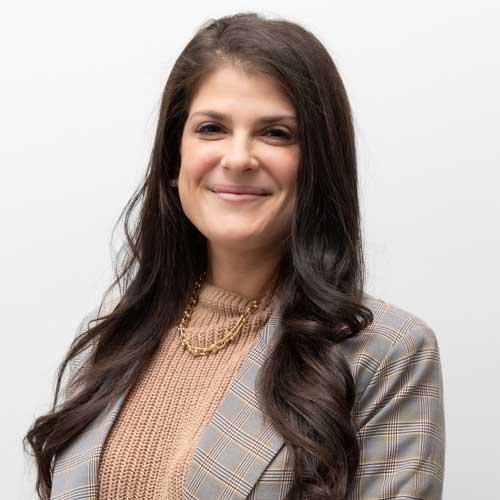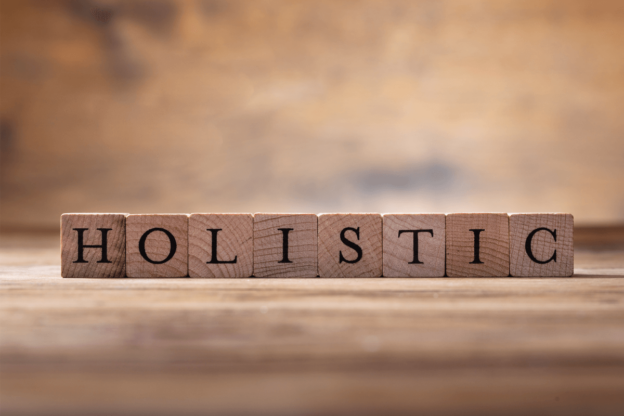Overcoming a drug or alcohol addiction isn’t just about abstinence — it’s about healing your mind, body, and soul from the lasting patterns of addictive behaviors, maladaptive coping mechanisms, and lifestyle imbalance that can perpetuate well after achieving sobriety. At our rehab centers in CT, we use a holistic approach to treating the whole person rather than focusing on addiction in isolation.
The Holistic Nature of Substance Use Disorders
Understanding the importance of holistic healing for recovery starts with understanding the holistic nature of substance use disorders. Defined simply, “holistic” means encompassing the whole, not any single component. In terms of substance use disorders, this means that addiction can overtake your entire life rather than just be a problem of misusing drugs or alcohol.
It is exceptionally rare for someone to have a drinking problem and no other problems in their life. What is far more common is for a person with a substance use disorder to have a co-occurring mental health condition, a history of traumatic experiences, a social group that encourages substance use, or challenges in relationships or coping skills.
The very nature of substance use disorders is all-encompassing. Untreated substance use disorders can begin to dominate your life, guiding your everyday actions and behavior and changing the way you think and feel.
Unsurprisingly, many of the diagnostic criteria of a substance use disorder include symptoms that don’t involve substances directly, such as:
- Failure to meet obligations at work, school, or home
- Abandonment of important hobbies or activities
- Interpersonal problems
- Worsening physical or mental health
Even these symptoms touch on only a part of the all-encompassing aspects of addiction. Treating physical, mental, and spiritual health are all components of effective substance abuse treatment at our Rehab centers in CT.
What Holistic Healing in Recovery Means Rehab Centers in CT Like the Connecticut Center for Recovery
A holistic rehab program is committed to not just the goal of abstinence but overall health and well-being in all aspects of life. Abstinence is just the starting point at our rehab centers in CT, with an abundance of addiction and mental health treatment options to help our clients build healthier lives in recovery.
Holistic healing is often broken down into three components: physical health, mental health, and spiritual health. Look at each element more closely to see how our comprehensive suite of mental health services can help you improve in each domain.
Physical Recovery
Physical health is often the first step in overcoming addiction. Many people who are breaking free from substance use disorders for the first time have several physical health consequences from their substance use. Drug or alcohol withdrawal is the most common of these physical challenges, often having lingering effects that last months.
Fortunately, many of these long-term withdrawal symptoms can be treated with a technique known as medication-assisted treatment (MAT). MAT is an evidence-based approach to helping people break free from physical withdrawal symptoms, resist drug or alcohol cravings, and increase the likelihood of prolonged sobriety.[1]
MAT is one of the most effective approaches for helping people overcome substance use disorders. The medications used in MAT target the same sites in the body as drugs or alcohol but to a much lesser degree — providing tangible symptom relief without the addictive qualities of drugs or alcohol.
Withdrawal isn’t the only aspect of physical recovery at our rehabilitation centers. In early recovery, people often struggle with several other physical health challenges that our team can assist with, including:
- Sleep difficulties
- Unexpected weight changes
- Medical conditions
Holistic recovery also emphasizes finding ways to move and heal your body through physical exercise, nutrition guidance, or sleep coaching.
Mental Recovery
In substance use treatment, co-occurring mental health conditions are prevalent. According to the National Institute on Drug Abuse, 37.9% of people with a substance use disorder also have a mental health diagnosis.[2]
Some of the most common mental health challenges people face in early recovery include:
- Depression
- Anxiety disorders
- Post-traumatic stress disorders
- Attention-deficit/hyperactivity disorders
- Bipolar disorder
Left untreated, these conditions can make it much more difficult for people to achieve and maintain their recovery. Mental health symptoms can trigger drug or alcohol cravings, make it challenging to find the motivation or energy to participate in treatment, or simply make it more difficult to enjoy your new life in recovery.
Treating these mental health conditions is a critical component of a holistic treatment program. At the Connecticut Center for Recovery, our team uses dual-diagnosis treatment options to help people with co-occurring conditions, providing relief from both disorders simultaneously.
Dual-diagnosis treatment is a method of care that combines the best in evidence-based addiction treatment and mental health treatment options. There is no “primary” condition being treated — we operate with the understanding that these two different types of mental health challenges have a profound impact on each other.
By healing from both disorders simultaneously, people can achieve a greater sense of personal well-being and commitment to their new life in recovery. This makes the difficult task of getting sober worthwhile and provides tools and skills to maintain your progress for years.
Spiritual Recovery
The spiritual aspect of holistic treatment options can have different definitions for different people. For many people, spiritual recovery is about connecting with a higher power — whether that be through church, 12-step programs, or reconnecting with their faith in other ways.
Yet, for others, spiritual recovery is more about reconnecting to who you are as a person. It means rediscovering your values, what you care about, and what gives you passion and purpose.
Regardless of whether you have faith in a higher power, spiritual recovery plays a vital role in a holistic treatment approach. Embracing spiritual recovery means finding a new way of life that you can be proud of living in recovery.
Holistic Healing as an Overarching Approach At A Rehab Center in CT
Holistic healing isn’t just about specific services offered by our treatment center. Instead, it is an overarching philosophy about substance use disorders and the way people can overcome them once and for all.
Our team emphasizes this holistic approach to healing in every aspect of your treatment at our facility. For example, this could mean working with your therapist to overcome personal challenges in your life that don’t revolve around substance use at all. It could also mean getting support in finding a new job or joining a community.
Holistic healing is about providing you with what you need most to sustain your recovery.
Start Treatment at Connecticut Center for Recovery’s Rehab Centers in CT
Connecticut Center for Recovery’s holistic rehabilitation programs have been designed from the ground up to cater to every one of our client’s unique needs. Overcoming addiction is never easy, but utilizing this holistic approach at our day treatment programs helps ensure that you have every tool at your disposal to achieve a worthwhile recovery that will last a lifetime.
To get started, contact our team today by filling out our online form or calling one of our addiction professionals.
Sources:
[1] https://www.samhsa.gov/medications-substance-use-disorders
[2] https://nida.nih.gov/research-topics/comorbidity/comorbidity-substance-use-other-mental-disorders-infographic

Alexis earned both a B.S. in Psychology and a B.S. in Family and Child Sciences from Florida State University and an M.A. in Marriage and Family Therapy from the University of San Diego. She holds licenses in Marriage and Family Therapy in Florida, Connecticut, and Massachusetts and is also a member of the American Association for Marriage and Family Therapy (AAMFT).
Alexis works with families, couples, children, and groups and also has a sub-specialty in addiction and recovery. She utilizes an integrated, systemic approach to counseling; empowering people to define what is not working for them in their lives and to discover the possibilities for making life work. In doing this, clients are guided towards identifying their strengths, accessing their resources, tapping into their potential for success, and taking action toward achieving their desired goals.
Alexis also has extensive experience in the administration of behavioral health organizations. She has developed, built, and supervised several facilities encompassing all levels of care while leading them through state licensing and The Joint Commission accreditation process.

